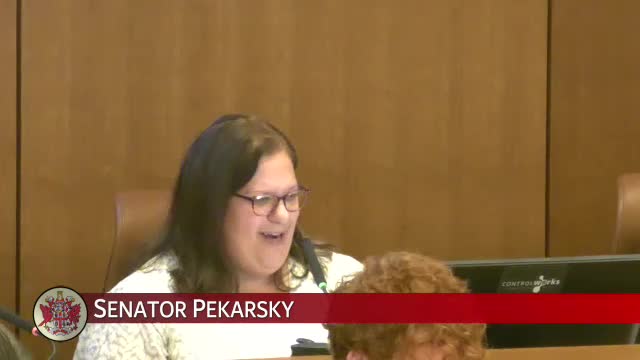Fairfax County highlights a single neurodiversity specialist's role, urges more funding and teacher training
Get AI-powered insights, summaries, and transcripts
Subscribe
Summary
Fairfax County Public Schools' neurodiversity specialist described four years of work embedding neurodiversity-affirming practices across curriculum, coaching and restorative processes; presenters urged more district and state funding for specialists, preservice training and student-facing supports.
Kristen Haynor, the divisionwide neurodiversity specialist for Fairfax County Public Schools, told the Virginia Autism Council she has spent four years building a new role that provides coaching, professional development and policy review to improve access for neurodivergent students across 199 schools and centers.
Haynor said the position is intended to be a tier‑1, equity-driven role that advocates for neurodivergent students and staff "to normalize the diversity of cognition and different behaviors" and to shift practice away from a medical, deficit model to a strengths-based, universal design approach. "We are working to flip the script from this linear deficit ideology about what neurodivergence is and moving into the neurodiversity-affirming whole person conceptualization," she said.
Haynor described core functions: divisionwide professional development for staff and operational departments such as transportation; coaching for principals and teams; review of curriculum and behavior matrices for exclusionary language; embedding universal design for learning (UDL) into lesson design and restorative-justice practices; and elevating lived experience from parents, students and staff.
She said FCPS serves roughly 183,000 students in PreK–12 and has one neurodiversity specialist. Speakers quoted by Haynor — students, staff and a school board member — recounted unmet accommodations, social isolation, and, conversely, examples of teachers changing instruction after training. "I realized I made assumptions on the needs of a student with a specific diagnosis," a quoted staff member said in Haynor's presentation.
Haynor and council members identified several gaps and recommendations: increased staffing (regional or district specialists or coaches to support individual student cases), mandatory preservice and in‑service training grounded in neurodiversity principles, expanded student-facing anti-bullying and peer-support work, and stronger alignment of higher-education and K–12 transition practices. She noted that many teacher-preparation programs provide minimal special-education coursework: "Five out of the 10 Virginia public universities that offer a bachelors in secondary education only require one introductory course in special education," she said.
Council members and attendees suggested metrics to evaluate impact, including educator readiness surveys (pre/post professional development), school-level inclusion markers and the district's existing student-survey data on safety and belonging. Haynor said capturing causal links between the specialist role and outcomes is difficult because the work is embedded across many offices, but she welcomed ideas for measurement and broader partnerships.
Haynor said she partners with inclusion, UDL and twice-exceptional committees and community organizations and urged legislators and the council to consider policies that would fund additional specialists and require strengthened training for teachers at the preservice level.
The presentation generated questions from delegates and school advocates about scaling the role and measuring outcomes; no formal council action or vote was recorded during the meeting.
